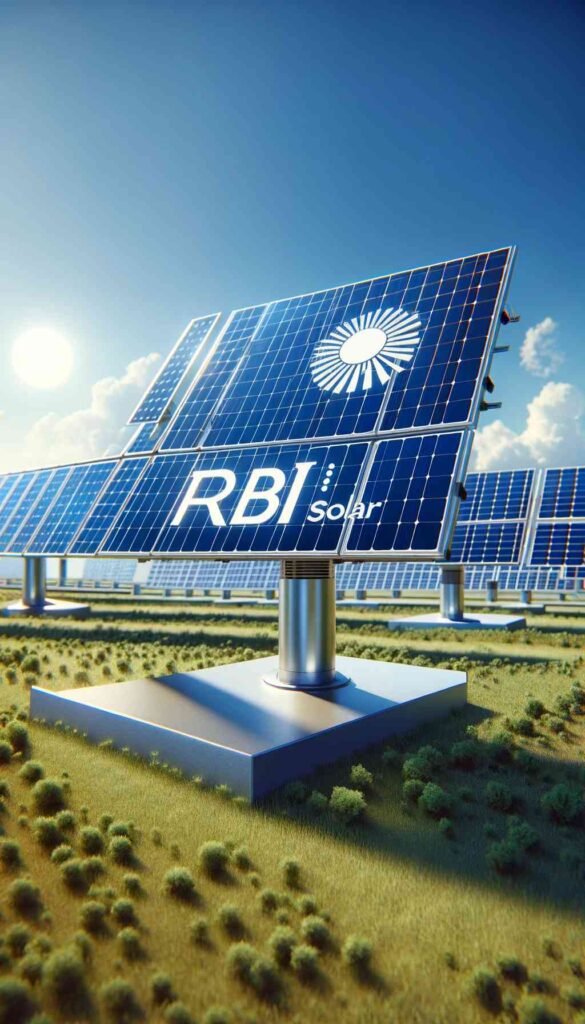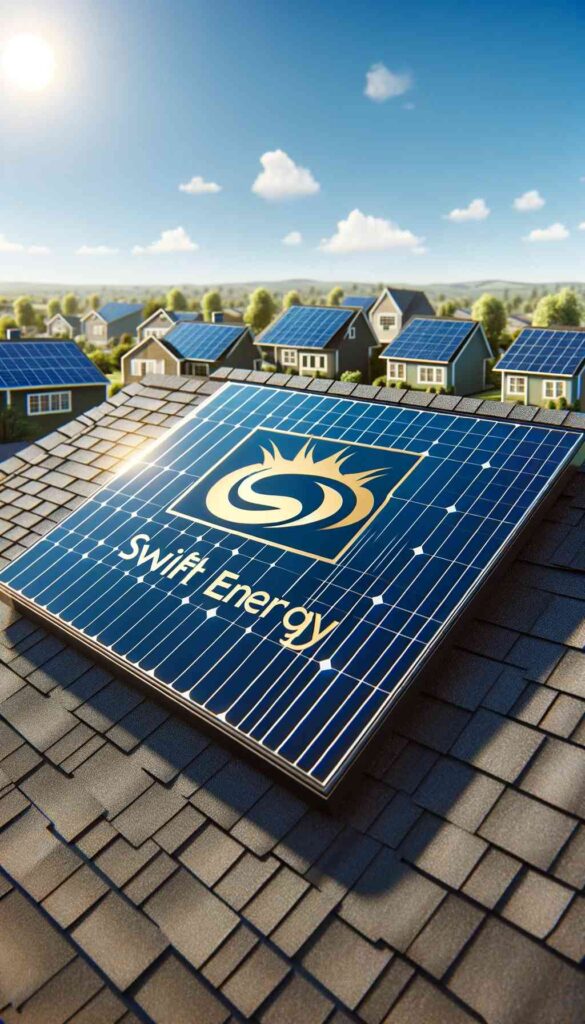Key Takeaways
- Switching to solar power can reduce energy bills by up to 75% for businesses.
- Tax incentives can cover up to 30% of the initial installation costs, making solar more affordable.
- Solar installations can increase property value by approximately 4.1%.
- Excess energy generated can be sold back to the grid, creating an additional revenue stream.
- Using solar power enhances a business’s public image as environmentally responsible.
Introduction to Solar Energy in Commercial Spaces
In today’s fast-paced world, businesses are constantly seeking ways to operate more efficiently while reducing costs. One of the most effective strategies is adopting renewable energy solutions, particularly solar power. Solar energy is not only a sustainable choice but also a strategic investment that can transform how businesses operate.
By harnessing the power of the sun, companies can significantly lower their electricity bills, improve their sustainability footprint, and even generate additional income. But before making the switch, it’s important to understand both the benefits and the considerations involved in installing solar systems on commercial properties.
Let’s dive into these questions and more to explore the comprehensive advantages of solar energy for commercial spaces.
Solar’s Impact on Business Operations
Solar energy can fundamentally change the way businesses manage their operational costs. Imagine a scenario where your energy costs are no longer a fluctuating expense but a predictable, manageable component of your budget. That’s the kind of stability solar power offers.
Most importantly, solar energy allows businesses to become more self-reliant. By generating their own electricity, companies can reduce their dependency on external power sources. This not only protects them from rising energy prices but also enhances their energy security.
Key Financial Benefits of Going Solar
The financial benefits of solar power are compelling. By investing in solar panels, businesses can enjoy substantial cost savings on their energy bills. In many cases, businesses can save up to 75% on their electricity costs, which translates to significant savings over time.
Solar power systems also often come with attractive tax incentives and rebates. For instance, businesses can take advantage of federal tax credits that can cover up to 30% of the installation costs. These incentives make the initial investment more manageable and improve the return on investment.
Advantages of Solar for Commercial Spaces
Beyond the immediate financial savings, solar energy offers numerous advantages that can positively impact a business’s operations and reputation.
Cost Savings on Energy Bills
One of the most direct benefits of solar power is the reduction in energy bills. Once the solar panels are installed, they begin generating electricity from sunlight, reducing the amount of power you need to purchase from the grid.
Enhanced Public Image and Sustainability
Today, consumers are more environmentally conscious than ever. They prefer to support businesses that prioritize sustainability. By adopting solar energy, companies can demonstrate their commitment to the environment and reduce their carbon footprint.
This shift not only improves a company’s public image but also attracts eco-conscious customers and clients. As a result, businesses that invest in solar power often find it easier to comply with environmental regulations and standards.
Potential Revenue from Excess Energy
Solar power systems often generate more electricity than a business consumes. When this occurs, the excess energy can be sold back to the grid through a process known as net metering. This not only creates an additional revenue stream but also further offsets the initial investment costs.
This capability enhances the appeal of solar power for businesses, maximizing both energy efficiency and financial returns.
Energy Independence and Resilience
Switching to solar energy gives businesses a great deal of energy independence and resilience. By generating their own electricity, companies can rely less on the public grid and avoid the unpredictability of fluctuating energy prices. This means operations can keep running smoothly even during power outages or grid failures, which is a huge plus for any business that needs a constant energy supply. Plus, producing renewable energy on-site helps companies stay resilient against future energy challenges, ensuring long-term stability and peace of mind.
Considerations Before Implementing Solar
Before diving headfirst into solar energy, it’s essential to consider several factors that can impact the success and efficiency of the installation. While the benefits are significant, understanding the challenges and requirements will help businesses make informed decisions.
Initial Installation and Upfront Costs
The initial cost of installing solar panels can be substantial. This includes the price of the solar panels themselves, inverters, batteries (if necessary), and installation labor. Depending on the size of the system and the complexity of the installation, costs can range significantly.
However, it’s important to remember that these are one-time costs. Once the system is in place, the ongoing expenses are minimal compared to traditional energy sources. Many businesses find that the long-term savings justify the initial investment, especially when taking into account the available tax incentives.
Dependency on Sunlight and Climate Factors
Solar power relies on sunlight, which means its efficiency can be affected by geographic location and weather conditions. Businesses located in regions with abundant sunshine will benefit more compared to those in areas with frequent overcast skies.
Space Requirements for Solar Installations
Another consideration is the space available for installing solar panels. Commercial properties with large rooftops or open land are ideal for solar installations, as they provide ample space for the panels to capture sunlight effectively.
| Location Type | Space Requirement |
| Rooftop | Approximately 100 square feet per kilowatt |
| Ground | Varies, typically more flexible |
It’s important to evaluate whether your property can accommodate the necessary number of panels to meet your energy needs. If space is limited, consider alternative solutions like solar carports or building-integrated photovoltaics.
Maintenance and Panel Replacement Needs
While solar panels are generally low-maintenance, they still require some attention to ensure optimal performance. Regular cleaning to remove dust and debris is essential, as well as periodic inspections to check for any damage or wear.
- Inspect panels every six months for damage.
- Clean panels at least twice a year or as needed.
- Check inverters regularly for efficiency.
Panel replacement might be necessary after 25-30 years, depending on the type and quality of the panels. Planning for these future costs is important for long-term financial planning.
Regulatory and Permitting Complexities
Installing solar panels involves navigating various regulatory and permitting processes. These can vary widely depending on your location, and it’s essential to comply with local building codes and regulations.
Working with experienced solar installation companies can help streamline this process, as they are often familiar with the necessary paperwork and requirements. This ensures that your installation is not only efficient but also legally compliant.
Incentives and Financial Opportunities
One of the most compelling reasons to invest in solar energy is the range of financial incentives available to businesses. These incentives can significantly reduce the cost of installation and improve the overall return on investment.
From tax credits to rebates, understanding these opportunities can make solar power an even more attractive option for businesses looking to save on energy costs and invest in sustainable practices.
Eligibility for Tax Incentives and Rebates
Many governments offer tax incentives and rebates to encourage businesses to adopt solar energy. In the United States, for example, the Investment Tax Credit (ITC) allows businesses to deduct a significant portion of the installation costs from their federal taxes.
These incentives can cover up to 30% of the installation costs, making solar power more accessible and affordable for businesses of all sizes. Some states offer additional incentives and rebates, further reducing the financial burden.
Long-Term Financial Stability and Cost Predictability
Switching to solar power provides businesses with long-term financial stability. By generating their own electricity, companies can protect themselves from fluctuating energy prices and reduce their reliance on external power sources.
This predictability in energy costs allows businesses to allocate resources more effectively and invest in other areas of growth. Over time, the savings from reduced energy bills can significantly outweigh the initial investment, making solar power a financially sound decision.
Solar’s Impact on Property Value and Marketability
Investing in solar power not only benefits a business’s bottom line but also enhances the value and marketability of the property itself. Properties equipped with solar panels are often more attractive to buyers and tenants, particularly those who prioritize sustainability.
Increase in Property Value with Solar Installations
Studies have shown that properties with solar installations can see an increase in value of approximately 4.1%. This is because solar-equipped properties often have lower operating costs and are seen as more sustainable and forward-thinking.
For businesses looking to sell or lease their property, this increase in value can be a significant advantage. It not only makes the property more appealing to potential buyers or tenants but also provides a competitive edge in the real estate market.
Attracting Environment-Conscious Tenants and Clients
In today’s world, sustainability is not just a buzzword; it’s a business imperative. Companies that prioritize green practices often attract tenants and clients who share the same values. By installing solar panels, a business can clearly signal its commitment to reducing its environmental impact.
Solar power can be a powerful marketing tool. It showcases a company’s dedication to innovation and responsibility. For potential tenants and clients who prioritize sustainability, a solar-powered building could be the deciding factor in choosing your business over competitors.
Conclusion: Taking the Leap into Solar Energy
Switching to solar energy is a strategic move that offers numerous benefits for businesses. From reducing energy costs to enhancing public image, the advantages are clear. However, it’s important to weigh these benefits against the initial costs and logistical considerations.
Summing Up Benefits and Considerations
Ultimately, the decision to go solar should align with your business’s long-term goals and sustainability objectives. With careful planning and a clear understanding of the benefits and challenges, solar power can be a transformative addition to your business strategy.
Most importantly, solar energy is not just about cost savings; it’s about investing in a sustainable future. By taking the leap into solar energy, businesses can contribute to a cleaner, greener world while reaping significant financial rewards.
Encouragement for Businesses to Explore Solar Options
For those considering the transition, the time to explore solar options is now. With numerous incentives and technological advancements, solar energy has never been more accessible. Partnering with experienced solar providers can ensure a smooth transition and maximize the benefits of your investment.
Whether you’re a small business or a large corporation, solar power offers a viable path to energy independence and sustainability. Embrace the opportunity to lead the way in renewable energy adoption and make a positive impact on both your bottom line and the environment.
Frequently Asked Questions (FAQ)
What are the long-term financial savings of installing solar?
Over the lifespan of a solar power system, businesses can save thousands of dollars in electricity costs. The exact savings depend on factors like location, system size, and energy usage. On average, businesses can expect to save up to 75% on their energy bills.
How does solar energy enhance a company’s public image?
Using solar energy demonstrates a commitment to sustainability and environmental responsibility. This can enhance a company’s reputation and attract customers and clients who value green practices.
Are there any specific solar incentives for commercial properties?
Yes, many governments offer tax incentives and rebates to encourage solar adoption. In the U.S., the Investment Tax Credit (ITC) allows businesses to deduct a significant portion of the installation costs from their federal taxes, making solar more affordable.
Some states also provide further incentives, such as performance-based incentives or grants, which can reduce the financial burden of going solar.
What maintenance is required for commercial solar panels?
Solar panels are relatively low-maintenance. Regular cleaning to remove dust and debris is essential, along with periodic inspections to ensure the system operates efficiently. It’s recommended to inspect panels every six months and clean them at least twice a year.
How soon can a business expect a return on investment?
The payback period for solar installations typically ranges from 5 to 10 years, depending on factors like system cost, available incentives, and energy savings. After this period, businesses can enjoy free electricity and increased savings.


